
For the last year, I’ve been working with several groups representing Inupiat Eskimos on the North Slope of Alaska. For thousands of years, the Inupiats have relied on the subsistence hunt of bowhead whales and other marine mammals in the Beaufort and Chukchi Seas of the Arctic Ocean.
In April of 2007, Royal Dutch Shell put forth an exploration plan proposing to drop two large mobile drill rigs and dozens of associated support vessels directly in the middle of the Inupiats’ subsistence hunting grounds during the fall whale hunt. Map. In some places, whale meat makes up as much as 50% of their annual diet, and the proposed drilling activities threatened to disrupt the fall hunt and jeopardize the safety of the Inupiat whaling crews.
Last year, I represented the North Slope Borough, the Alaska Eskimo Whaling Commission and the Inupiat Community of the Arctic Slope in a challenge to Shell’s exploration plan. We argued that the Minerals Management Service illegally disregarded the potential impacts to subsistence activities in approving the exploration plan. Here's our main brief. In August, the 9th Circuit Court of Appeals issued an injunction setting aside the exploration plan as Shell was mobilizing its fleet and moving ships into place. A Reuters article --- NY Times Article.
This month, I was lucky enough to travel to Barrow to meet with members of the North Slope Borough and ICAS. We won the first round of litigation, but the pressure to extract oil and natural gas from the Arctic is increasing. I wanted to travel to Barrow to meet folks face to face and learn more about their traditions and practices.
On the day I arrived, one of the whaling crews landed one of the first bowheads of the season, and before I had been in Barrow more than a few hours I found myself at the edge of the pack ice helping to prep the whale to be hauled up out of the water.
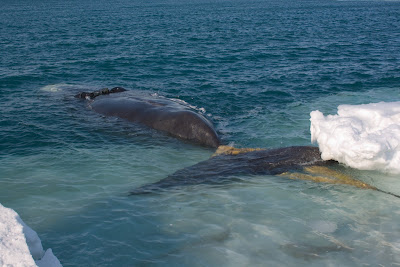

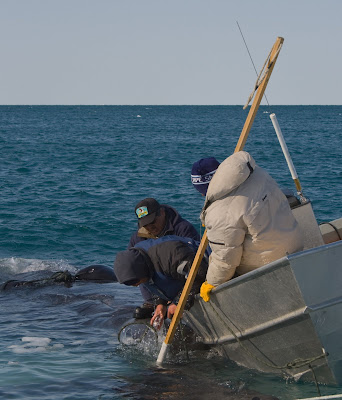
For the next several hours, I watched as dozens of family members arrived on snow machines and we started the long, slow process of hauling the 30 ft. whale onto the ice by hand.

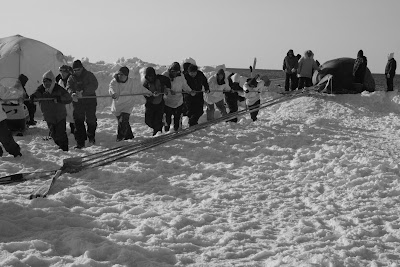
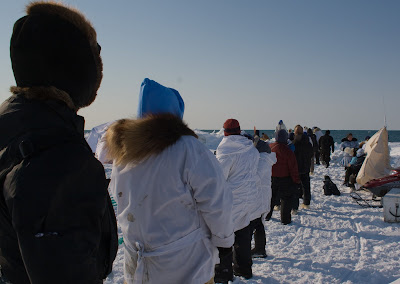
Once we got the whale out of the water, they started processing the whale meat, which will be distributed to the family and other members of the community who need food. Using traditional tools, the whale meat was cut into smaller chunks and staged on the ice before being loaded up into sleds and towed off towards the village.

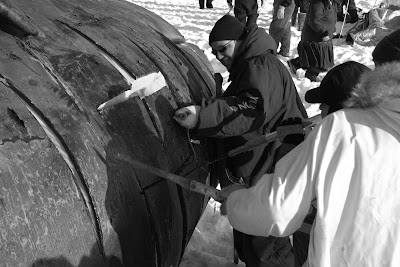
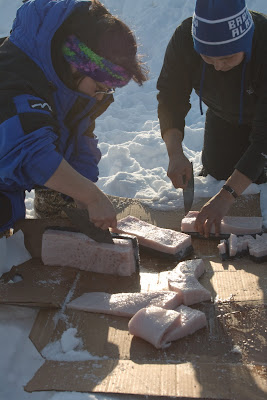
Some of the meat was boiled on site for folks to enjoy. Yum. Maktak.
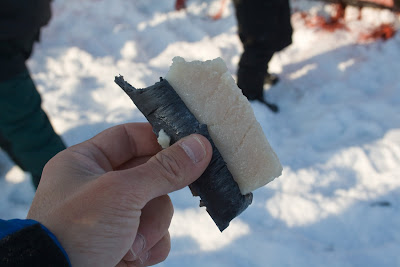
At the same time, scientists from the Borough’s Dept. of Wildlife collected data and tissue samples from the whale.
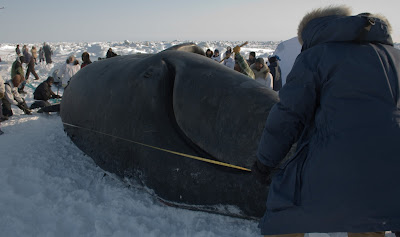
They send people out to every whale that is landed and have assembled an impressive database of information on the bowhead whale over many years. The Borough’s scientists, who probably know more about the bowhead than anyone else in the world, provided invaluable assistance in the court case, explaining how whales react to underwater noise associated with drilling and icebreaking activities. I got a chance to meet the scientists in person and learn more about the whale and its annual migration from the Bering Sea through the Chukchi and into the Beaufort and back.
I came away from the trip with a much better appreciation for the culture and traditions of the Inupiat. The whale hunt provides the very foundation for their diet, family, psychological health and the maintenance of their history and traditions.
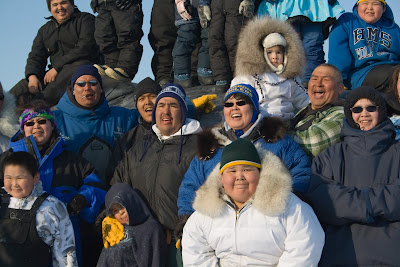
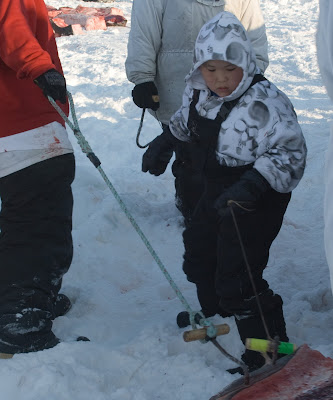
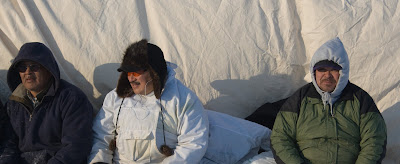
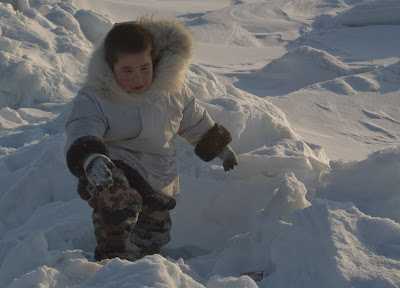
I look forward to offering my help as they face continuing threats to subsistence activities from the oil industry.





No comments:
Post a Comment